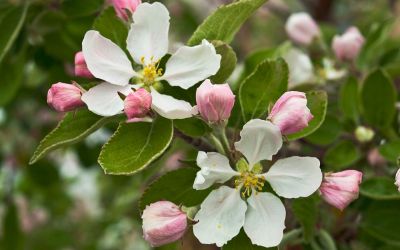A flower and fruit fact-finding quest

Apple Blossoms
By Axel Kristinsson from Reykjavík, Iceland (Apple Blossoms Uploaded by russavia) [CC BY 2.0 (http://creativecommons.org/licenses/by/2.0)], via Wikimedia Commons
A recent research project has investigated how plants control the progression of flowering and fruiting.
Fruiting and flowering of plants is of huge importance for agriculture and food security. Despite years of research, little is known about how plant genetics and the environment control fruiting and flowering processes (through a mechanism known as proliferative arrest).
The EU-funded project 'PROLIFERA - Proliferative arrest and its ecological relevance as a resource allocation strategy in Arabidopsis' (PROLIFERA) investigated this process using advanced genetic tools. Researchers used the model plant Arabidopsis thaliana for their experiments.
First, PROLIFERA investigated the genetics of proliferative arrest by harvesting meristems (growing regions similar to stem cells) from plants at different stages of fruiting. Production of seeds resulted in a reversible transition of maternal meristems into a dormant state, which was associated with changes in the expression of genes involved in a variety of hormonal responses.
Next, the researchers searched for genetic variants linked to altered reproduction. They screened 5 500 plants, identifying 5 variants with 22–47 % increased seed output, 5 variants with larger seeds and one with early growth arrest after fruit production. These mutants are characterized in follow-up projects and are expected to offer insights into the genetic regulation of the proliferative arrest, as well as new ideas how to increase yield in crop species.
The PROLIFERA project set out to understand the genetics behind proliferative arrest. It has achieved this goal, and in the process produced resources that will help scientists study this complex process in more detail.
published: 2015-04-09

